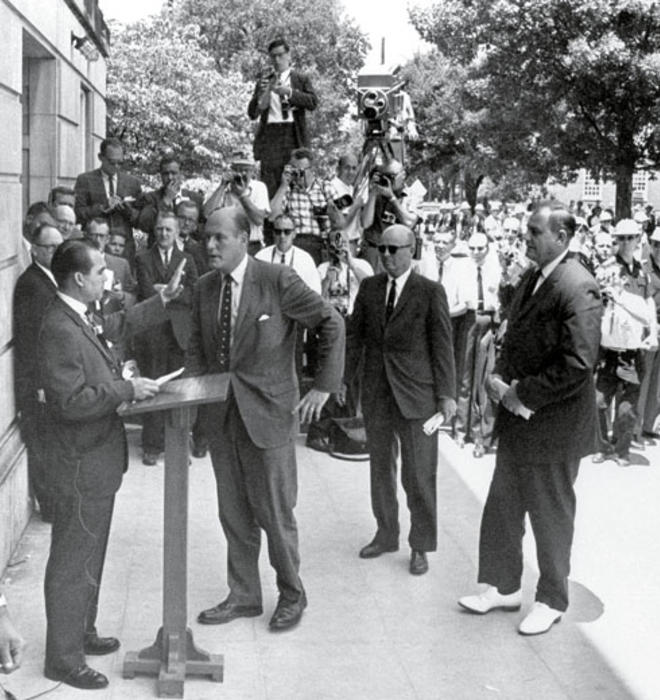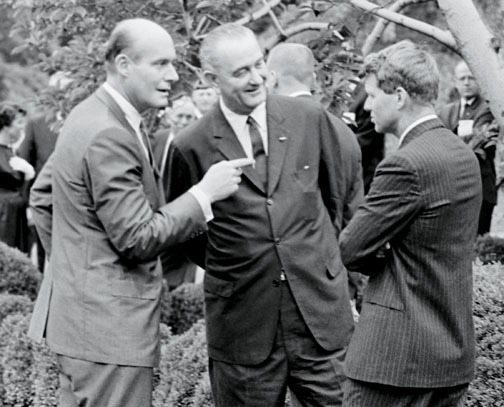
Jan. 17, 1922 — May 8, 2012
It says worlds about the character of Nicholas deBelleville Katzenbach that Some of It Was Fun, his modestly titled 2008 memoir of service at the highest levels of the U.S. government, makes no mention of what must have been the most harrowing experience of his life: two years in Italian and German prison camps after the B-25 bomber he was navigating was shot down over the Mediterranean in World War II.
Katzenbach had enlisted as a Princeton junior, just after the attack on Pearl Harbor, and when he heard his bombardier announce that their plane was on fire, he simply responded, “That’s too bad.” Decades later, groping in vain as deputy secretary of state for a way to wind down the Vietnam War, he summed up the difference between himself and Walt Rostow, one of the Johnson administration’s biggest hawks, saying, “I was the navigator who was shot down ... and Walt was the guy picking my targets.”
He was the son of a distinguished New Jersey family (his father was the state attorney general in the 1920s and his mother the first female head of the state Board of Education), but he wore his lineage as he wore everything else: lightly. As his daughter Mimi recalled in a moving memorial service in Alexander Hall in June, he did not join his fellow POWs in the breakout that would become celebrated in film as The Great Escape, but he entertained their captors with Kaufman and Hart’s You Can’t Take It With You, to cover the sound of the digging. After the war, he persuaded Princeton that the 500-odd books he’d read in captivity should count toward his undergraduate degree. Two years later, he graduated from Yale Law School and went on to study at Oxford as a Rhodes Scholar.
He knew neither John nor Robert Kennedy before joining the New Frontier as head of the Justice Department’s Office of Legal Counsel, but he came to be one of their most trusted aides as deputy attorney general, supervising the integration of the state universities of Mississippi and Alabama, and later serving as Lyndon B. Johnson’s attorney general.
I interviewed Katzenbach just a couple of weeks before his death, for a book on the 1964 Civil Rights Act, probably the most important law of the 20th century, in whose drafting and passage he had played a crucial role. His voice was weak but his wit unflagging. He recalled the challenge of negotiating the bill with the Senate Republican leader, Everett Dirksen, before so much bourbon had been consumed that Dirksen — who wanted changes — wouldn’t remember in the morning what he’d agreed to the night before. “Burke Marshall,” the assistant attorney general for civil rights, “one of the best lawyers I’ve ever known, was capable of redrafting something in different words to say the same thing,” Katzenbach recalled. “He could do it once. It was much more difficult to do it twice.”
Katzenbach was a longtime University trustee, and at the end of his memorial service, the congregation in Alexander Hall joined in a fitting call and response from the Book of Matthew: “Well done, good and faithful servant.” Well done, indeed.
Todd S. Purdum ’82 is national editor at Vanity Fair.
CLICK HERE to watch a video of Nicholas Katzenbach ’43






No responses yet